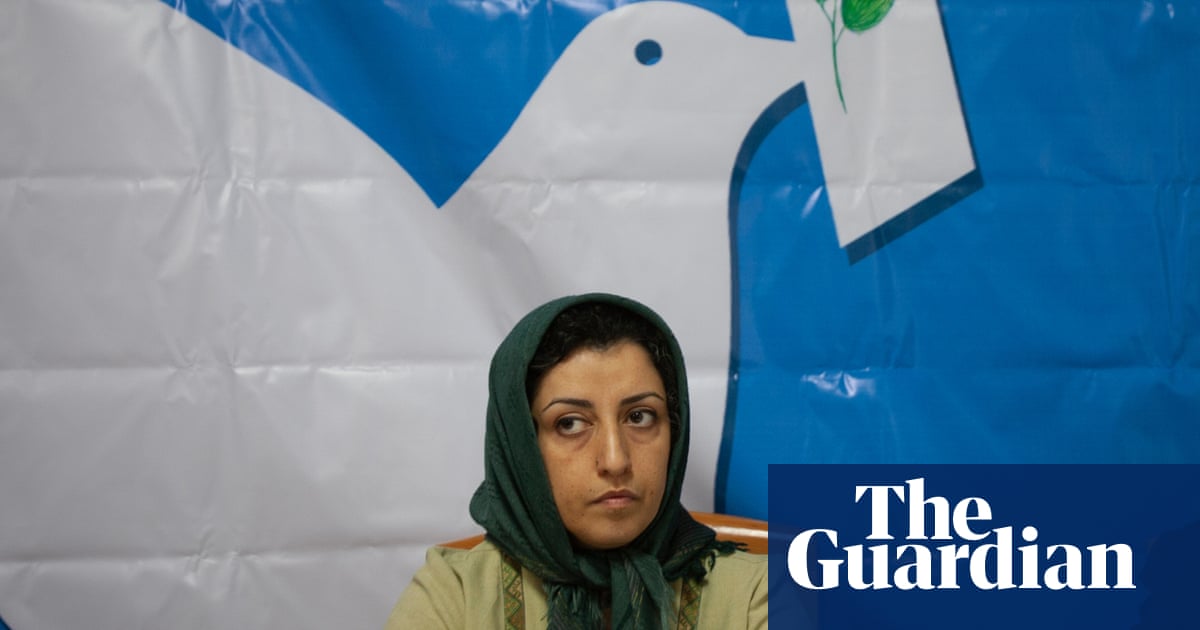
n August, as a giant bouncy castle was throwing a shadow on Warsaw’s baroque-style Ujazdow castle – home to the Centre for Contemporary Art – a party was under way. It was the last in To Be Real, an events series aimed at maximising the space’s fleeting inclusivity of Poland’s LGBTQ+ community. One of the artists was running late. “I came almost straight out of jail and played probably the most aggressive set in my life,” says DJ and producer Avtomat.
A day earlier, he had been arrested at a protest against the pre-trial detention of an LGBTQ+ rights campaigner known as Margot. Human Rights Watch described the government’s violent crackdown on activists as an attempt to crush dissent against state-sanctioned homophobia: the ruling Law and Justice party has pledged to fight “LGBT ideology” to protect the so-called traditional Polish family unit.
The rhetoric has been at the centre of its 2020 presidential campaign, fuelling prejudice and hate crimes throughout the country. In the past year, more than a third of Polish towns have declared themselves “LGBT-free zones”. In July, two men and a woman were brutally beaten outside a gay club in Kraków. A week after To Be Real, the new director at the Ujazdowski, one of Poland’s main cultural institutions, began his event curation by booking the neo-Nazi Hungarian band Hungarica, which was then cancelled after a public outcry. Director Piotr Bernatowicz is sympathetic to the government’s views and has pledged to minimise the influence of leftwing artists.
Hip-hop and experimental pop artist Bella Ćwir says there are fewer and fewer spaces where the LGBTQ+ community can feel safe, alleging “incidents of cops coming to queer parties under the false pretence of verifying the number of people due to the pandemic regulations”. At the protests, there have also been “several instances of cops harassing people during their custody stay, especially trans women. There’s little to no possibility of them facing any consequences for that.” Ćwir say they are “desensitised” to this treatment, having experienced it their whole life.
Yet recent events in Poland have radicalised them. They wear loud make-up, long wigs and lavish clothes, inspired by the girls who “had nothing to lose” that they saw as a teenager on the MTV reality shows of the 2000s. More recently, they say, “I understood it was never just a ‘satire’ or simply dressing up in costumes and playing roles.” They say their visibility has helped others who experience hate. “I get feedback from lots of people that what I do helps them get through the day and that they feel less alone, that it gives them the strength to express themselves freely, too.”
Poland’s wider LGBTQ+ community is similarly bold and defiant, responding to the government’s stance and police brutality against demonstrators in August with solidarity protests across the country, dubbed the Polish Stonewall. “What stood out to me is how quickly people could organise and come to show their support,” says Łukasz Warna-Wiesławski, who DJs as Rusałka. They recently founded a label, Tańce, to release club music inspired by traditional Polish instruments and rooted in contemporary Poland.
Avtomat has recorded the label’s inaugural EP, due out this autumn. It details his “anger and disenchantment” at the situation faced by LGBTQ+ people in the country and the importance of “voicing our emotions and giving our community strength”. He is also part of the queer performance collective Ciężki Brokat and the feminist and queer electronic music collective Oramics, both of which aim to diversify the club scene and educate venues on how to make their spaces safer. In addition to supporting LGBTQ+ people, Oramics organises monthly fundraisers for the homeless and to support action on climate change. (The government has sanctioned logging of forests in Białowieża and Vistula lagoon.)
After far-right groups attacked demonstrators with bricks, bottles and stones at a 2019 Pride march in Białystok, Oramics raised more than £6,000 – equivalent to an average six-month salary in Poland – from the sales of a compilation, Total Solidarity, and a party at Jasna 1, a major club in Warsaw. The money was divided between non-profits Love Does Not Exclude and Campaign Against Homophobia. The latter redistributed it to Fund for Change, which issues three grants offering support to smaller towns across Poland.
Brutaż, a party founded in 2012 that is now a label, is credited as one inspiration behind this wave of politically aware partying in Poland. It has explicitly supported the LGBTQ+ community, co-organised a vigil for George Floyd, Breonna Taylor and Ahmaud Arbery and other victims of racism, and donated to those affected by the explosion in Beirut. The collectives Flauta and Synergia also centre social justice work in their activities, fundraising for charities that provide aid to refugees – explicitly demonised by the Law and Justice party in its 2015 presidential campaign – and that act on climate change. In 2019, Unsound festival, the main experimental music event in Poland and eastern Europe, began asking international festival-goers travelling to Kraków to offset their carbon footprint by buying bundles of trees to be planted in the city.
The experimental music community’s fight for justice in Poland, then, is intersectional. The post-punk feminist band Siksa, comprising poet and singer Alex Freiheit and bassist Buri, recently released their album Revenge on the Enemy. “[It is] a story about violence against women directly,” says Buri, “but, unfortunately, it’s the same kind of violence directed on to queers, people of colour, anarchists and so on.”
Siksa have released a track in support of the LGBTQ+ community accompanied by a video featuring footage of police assaulting protesters, pushing and dragging them on the ground, during the events in August. It’s spliced with images of a battle dance by people in face masks – not only to protect against Covid-19, but also to preserve their anonymity for safety.
The group primarily operate in their hometown of Gniezno (population under 70,000). They organise concerts, workshops, film screenings and meetings with authors who talk about equality, feminism and the LGBTQ+ community in what Freiheit calls “a normal way”, aiming to reach every resident – just one example of the grassroots approach in Poland that could hopefully bring about change. “I want to be a supporter, doing small steps,” says Freiheit. “No more heroes, no more romanticism, no more monuments. Simple things to the people. To empowerment.”












